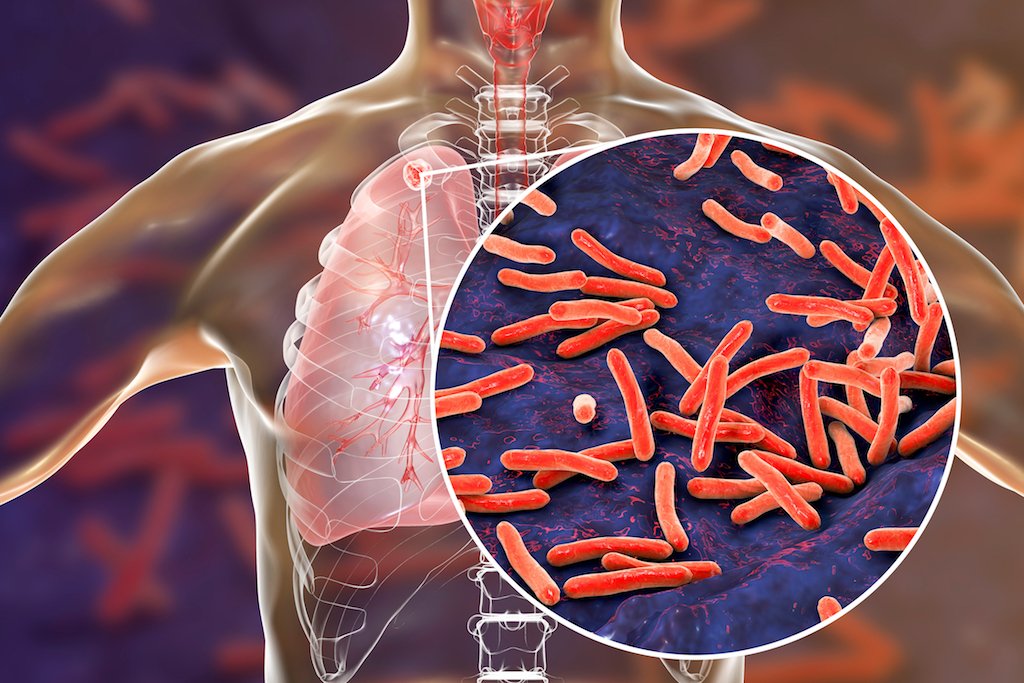Tuberculosis (TB) is a contagious bacterial infection that primarily affects the lungs and can spread to other parts of the body. It is transmitted through airborne droplets, making it a significant global health concern. In this guide, learn about TB symptoms, how to stay safe, and the role of vaccination in preventing severe cases.
What is Tuberculosis?
Tuberculosis (TB) is a bacterial infection caused by Mycobacterium tuberculosis. It primarily affects the lungs but can also spread to other parts of the body, such as the kidneys, spine, and brain. TB is a contagious disease that spreads through airborne droplets when an infected person coughs, sneezes, or speaks. While not everyone exposed to TB becomes ill, those with weakened immune systems are at higher risk.
Types of TB:
- Latent TB: The bacteria remain inactive in the body and cause no symptoms. People with latent TB are not contagious.
- Active TB: The bacteria are active, leading to symptoms and the ability to spread the disease to others.
Common Symptoms of Active TB:
- Persistent cough (lasting more than three weeks)
- Chest pain
- Coughing up blood or mucus
- Fatigue and weakness
- Unexplained weight loss
- Night sweats and fever

How to Stay Safe from Tuberculosis
- Avoid Close Contact with Infected Individuals:
- Limit exposure to people known to have active TB, especially in enclosed or poorly ventilated areas.
- Maintain Proper Hygiene:
- Cover your mouth when coughing or sneezing.
- Wash your hands regularly to reduce the risk of spreading or contracting germs.
- Ensure Good Ventilation:
- Keep indoor spaces well-ventilated as TB bacteria spread more easily in closed, poorly ventilated environments.
- Strengthen Your Immune System:
- Follow a healthy diet rich in fruits, vegetables, and lean proteins.
- Exercise regularly and avoid smoking or excessive alcohol consumption.
- Get Tested if You’re at Risk:
- People working in healthcare or living in areas with a high prevalence of TB should undergo regular screening.
- Take Preventive Measures:
- If you’ve been in close contact with someone diagnosed with active TB, consult a healthcare professional about preventive therapy.
Tuberculosis Vaccination: BCG Vaccine
The Bacille Calmette-Guérin (BCG) vaccine is the primary vaccine used to protect against tuberculosis. It’s most effective in preventing severe forms of TB, such as TB meningitis and miliary TB, in children. However, its effectiveness in adults, particularly for pulmonary TB, varies.
Key Facts About the BCG Vaccine:
- Target Group: It is usually administered to newborns and children in countries with a high TB prevalence.
- Availability: In countries with low TB prevalence, the BCG vaccine is not routinely given.
- Protection Duration: The vaccine provides long-lasting but not lifelong immunity. Adults who received the BCG vaccine as children may still contract TB later in life.
- Side Effects: Generally mild, such as a small sore or scar at the injection site.
Who Should Get the BCG Vaccine?
- Newborns and infants in high-risk areas.
- Unvaccinated healthcare workers or individuals at higher risk of exposure to TB.
Final Thoughts
Tuberculosis remains a global health concern, but prevention and early detection play vital roles in controlling its spread. Adopting healthy lifestyle practices, avoiding exposure to infectious individuals, and considering vaccination are effective strategies to stay safe. If you suspect TB symptoms or have been exposed to someone with TB, seek medical advice promptly for testing and potential treatment.





Leave a Reply